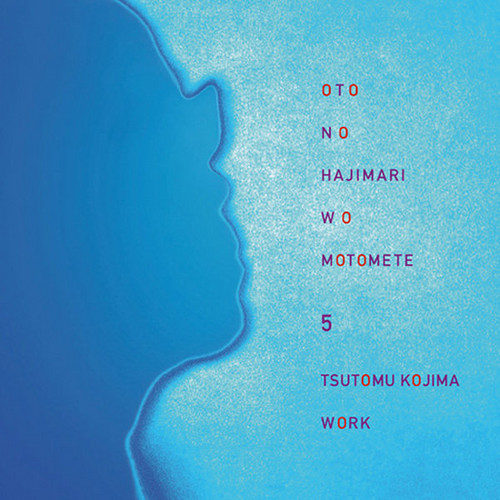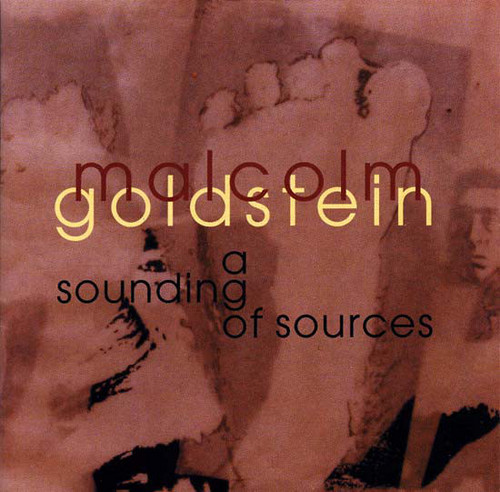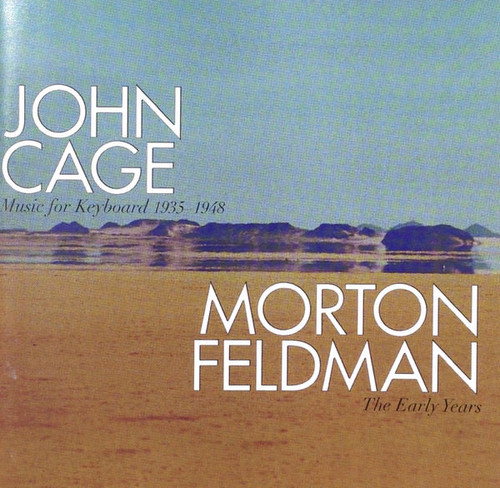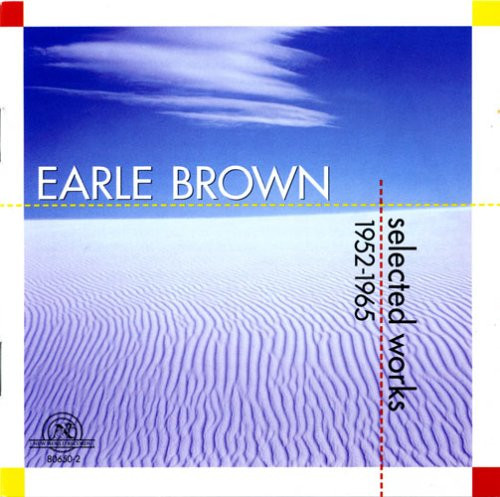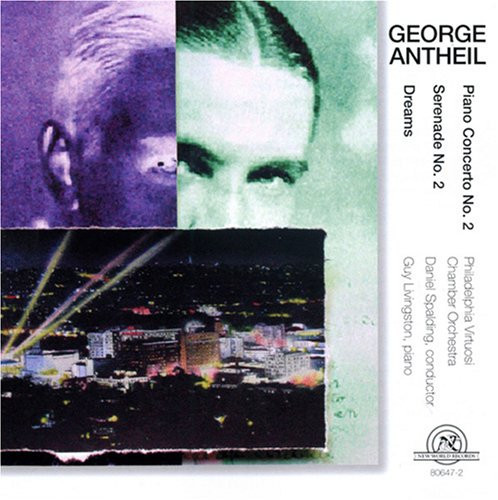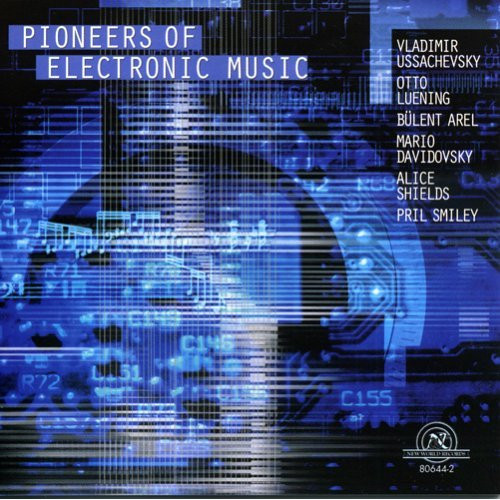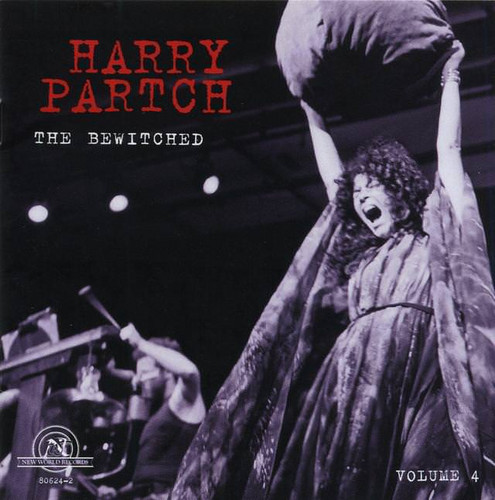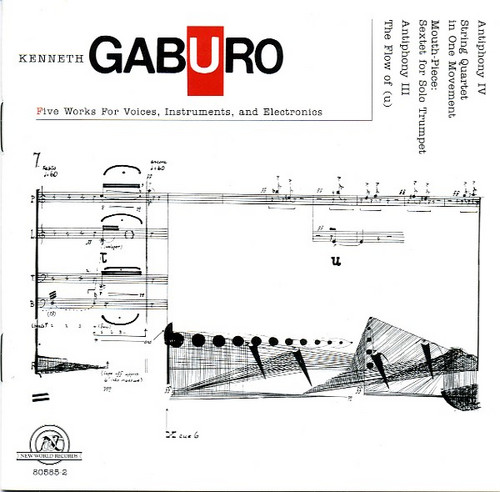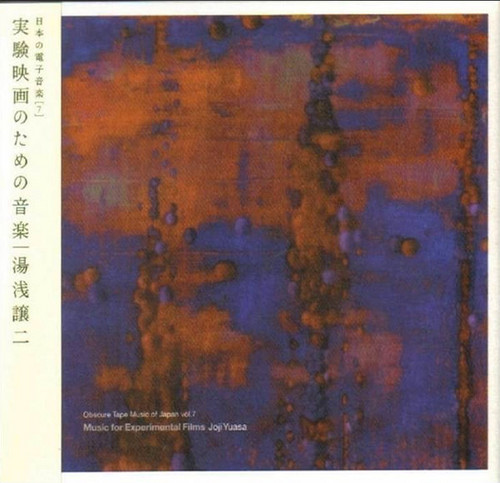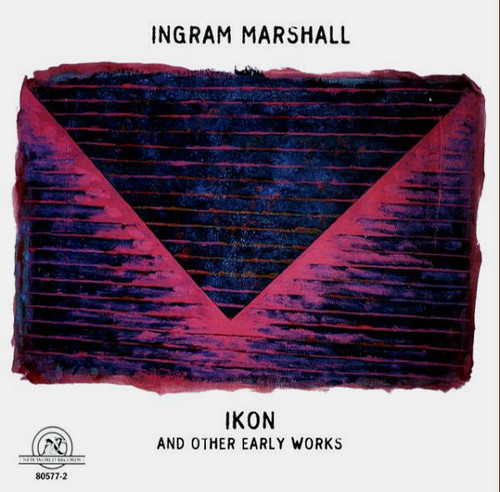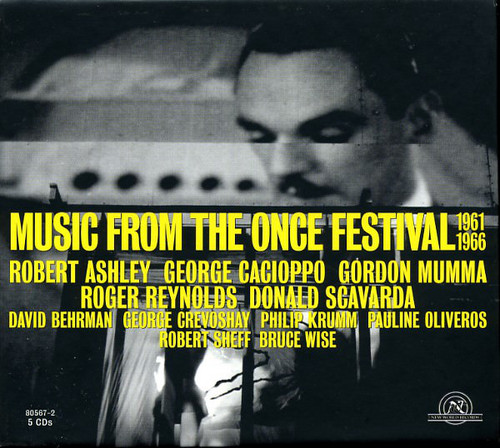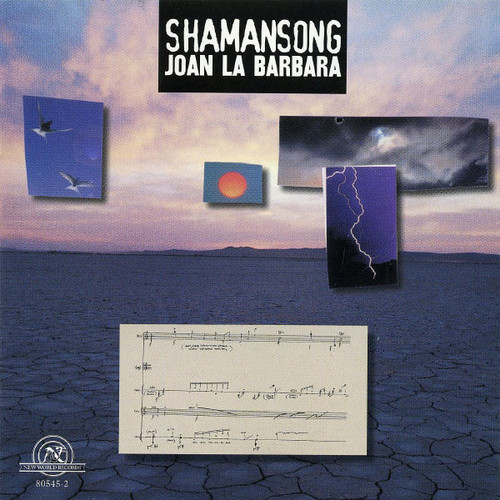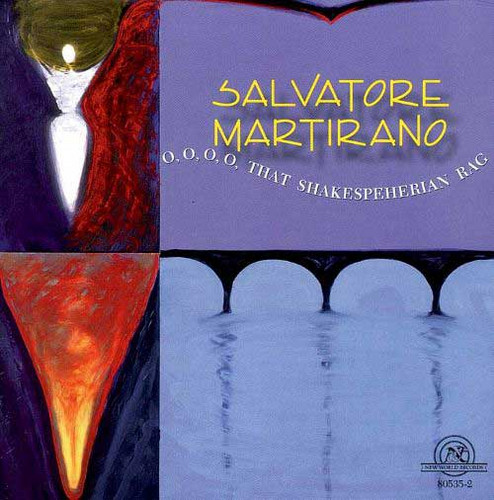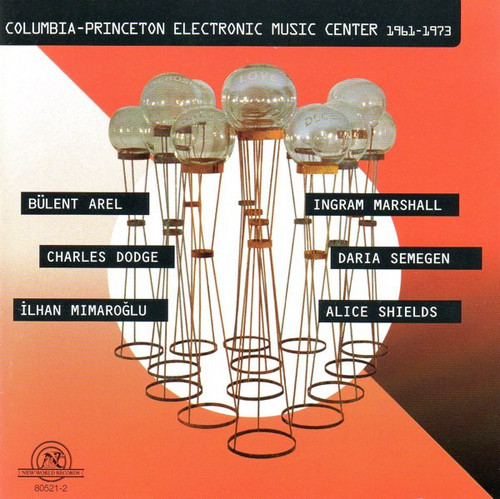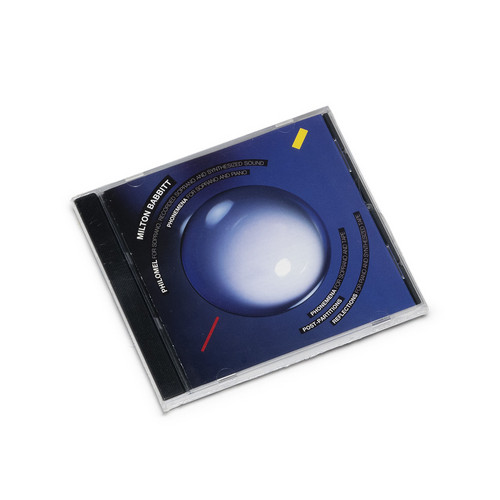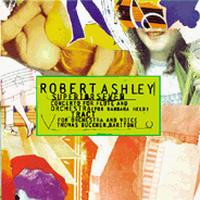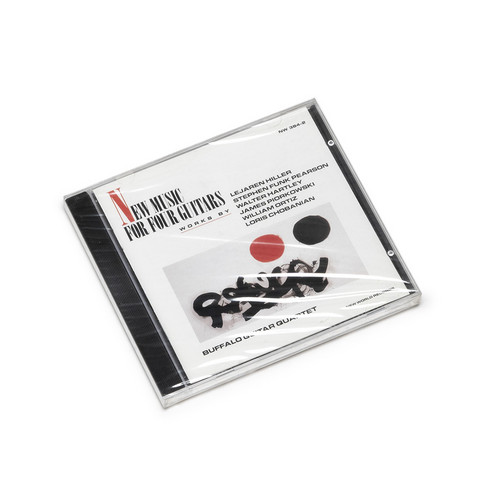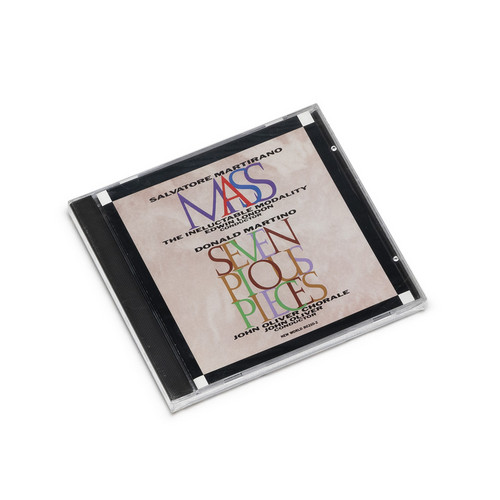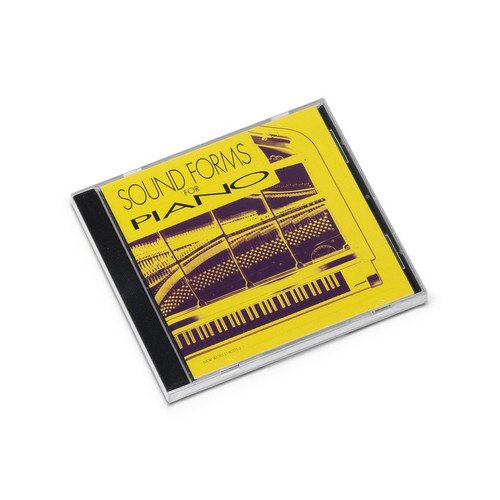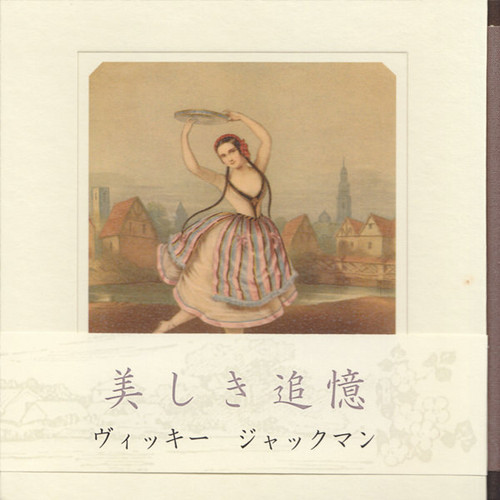Reissues
Oto No Hajimari Wo Motomete 5: Tsutomu Kojima Work
The fifth in this superb series covering historical Japanese electronic music from the Nhk studios, the first covering pieces engineered by Tsutomu Kojima (prior volumes dealt in pieces assisted by Shigeru sato and Hirosi Siotani) highlights herein include Jo Kondo’s “never return” (harsh/psychedelic vocal/piano cutups from 1971 !!!), Hifumi Shimoyama’s fumon iv a, and oto no hajimari wo motomete perennial Joji Yuasa’s my blue sky.
1. “Beyond the Clouds” Keiki Okasaka
A work was intentionally…
a sounding of sources
Malcolm Goldstein has been labeled an “improviser” and a “composer-violinist” (or merely a violinist). What this CD once and for all shows is that he is indeed those things, but encompassing them all is the fact that, profoundly, he is a composer. As he points out, “At the core of Baroque music was the integration of composition and improvisation,” and Goldstein brings the perspective and focus of a seasoned performer to this undertaking. In this way his music represents a further evolution of t…
Music For Keyboard 1935-1948 / The Early Years
This double-CD set combines two of the key titles of Columbia Records's
legendary "Music of Our Time" series curated by David Behrman. Jeanne
Kirstein's recording of Cage's early keyboard works remains a touchstone
of Cagean interpretation notwithstanding the passage of time. Christian
Wolff recalls, "I remember Cage saying that Jeanne Kirstein's playing
caught the spirit in which the pieces were written at the time he wrote
them-a kind of simple excitement and enthusiasm (also, surely, ou…
Earle Brown: Selected Works 1952- 1965
This long-awaited reissue of the CRI recording of Earle Brown’s (1926–2002) music is the best overview of his seminal early works. “It is obviously a great pleasure for me that Cri is re-releasing its 1974 recording of my work, and an even greater pleasure that I am able to add to the repertoire. The performance of Times Five and Novara still seem very fine representations of the works and are performed brilliantly by the Dutch musicians. December 1952 as realized by the late, brilliant pianist …
George Antheil: Piano Concerto No. 2
The Piano Concerto No. 2 is an experiment in classical form. The work contains the same sudden juxtapositions and abrupt contrasts of mood as his futurist music. But the excesses of his recent Ballet mécanique are compensated for by an almost spare, baroque orchestration and motifs that draw on Bach as much as on Stravinsky. In three movements, Antheil employs a more restrained but still exuberant style. The beautifully meditative slow movement is followed by a virtuosic and compelling toccata. …
Pioneers of Electronic Music
In 1950, the Columbia University Music Department requisitioned a tape recorder to use in teaching and for recording concerts. In 1951, the first tape recorder arrived, an Ampex 400, and Vladimir Ussachevsky, then a junior faculty member, was assigned a job that no one else wanted: the care of the tape recorder. This job was to have important consequences for Ussachevsky and the medium he developed. Electronic music was born. Over the next ten years, Ussachevsky and his collaborators established…
The Harry Partch Collection, Volume 4
Meticulously remastered from the original mono master tapes! The Bewitched was Harry Partch’s first work solely intended for dance (and mime-dance at that; he was not overly enamored in his lifetime of so-called “modern dance”). Drawing heavily from his deep affection for the music-theatrical performance traditions of Greek theater, as well as those from Africa, Bali, and Chinese opera, Partch conceived of a contemporary American music ritual-theater where musicians not only play, but also funct…
Five Works For Voices, Instruments, And Electronics
Kenneth Gaburo (1926–1993) composed works for instruments, voices, electronics, multi-media, theater, and a variety of other resources. Foremost among his many interests was a concern with the voice and with language—how we shape language and how we are shaped by it—and with making works that existed somewhere between the boundaries of music and language. Of the works on this CD, three are intensely concerned with what Gaburo termed “Compositional Linguistics” (Antiphony III, Antiphony IV, and M…
Music for experimental films. Obscure Tape Music of Japan vol. 7
This is volume 7 of Omega Point's Obscure Tape Music of Japan series. Many avant-garde composers made soundtracks for experimental film-maker Toshio Matsumoto. This CD consists of Joji Yuasa's three musique concrète works for his 1960s and 1970s short films. The first track features a heavily broken and meaningless narrator for the short film Andy Warhol: Re-Reproduction (1974); "Document Of The Long White Line" is an obscure, early electronic sound collage with chamber orchestra, and "Auto…
Ikon and other Early Works
This CD comprises the text-sound works (1974-1980) on which Ingram Marshall concentrated throughout the seventies and falls into two parts: the works from the Fragility Cycles period (Cries Upon the Mountains, SUNG, Sibelius in His Radio Corner, and IKON) and the earlier works (Cortez, Weather Report, and The Emperor’s Birthday).
“Cortez, Weather Report, and The Emperor’s Birthday
form a kind of trilogy representing my work with “text-sound” in the
early seventies. The techniques used to gener…
Music From The Once Festival 1961-1966
With Robert Ashley, George Cacioppo, Gordon Mumma, Roger Reynolds, Donald Scavarda, David Behrman, George Crevoshay, Philip Krumm, Pauline Oliveros, Robert Sheff, Bruce Wise. Ann Arbor, Michigan, seems an unlikely site for the establishment of a major avant-garde festival that would shake the new-music community. Tucked away in America’s heartland, the city is equally removed from the Eastern metropolises whose artists pride themselves on sensing the pulse of the times, and from the nonconformis…
ShamanSong
Composer/performer Joan La Barbara (b 1947) has been an influential figure in experimental music since the early 1970s. She has devoted her career to the exploration of the human voice as a multi-faceted instrument. Going far beyond traditional boundaries, she has created works for multiple voices, chamber ensembles, music theater, orchestra and interactive technology. ShamanSong features three premieres of vintage La Barbara "sound paintings" of pensive beauty and spiritual resonance.
ShamanSo…
O, O, O, O, That Shakespeherian Rag
O,O,O,O, That Shakespeherian Rag collects six of the most important compositions from his relatively small body of work. By the late 50s Martirano had begun to freely incorporate elements of jazz and popular music. O,O,O,O, That Shakespeherian Rag(1959), one of his two magnum opuses, is a prime example of this musical synthesis—a serialist choral setting of passages from three Shakespeare plays, accompanied by a chamber orchestra that includes a jazz ensemble. Schoenberg meets bebop in a wild, i…
Columbia- Princeton Electronic Music Center 1961- 1973
Works by Bülent Arel, Charles Dodge, Ingram Marshall, Ilhan Mimaroglu, Daria Semegen, Alice Shields. The Columbia-Princeton Electronic Music Center was the first electronic music center to be established in the United States. From 1959 to the late 1970s, it was one of the premiere sound facilities in the world. The vast majority of pieces composed at the Center - approximately three hundred - were composed during this period. Some have become classics of music history. This selection, draw…
Philomel
Compositions performed by Bethany Beardslee and Lynne Weber (sopranos), Jerry Kudern and Robert Miller (pianos). The four works on this recording span a period of a decade and are among the best of Milton Babbitt’s output, tape and otherwise. Philomel, for soprano, recorded soprano, and synthesized sound, is one of the undisputed classics of electroacoustic music and this is its definitive recording. Two versions of Phonemena —one for soprano and piano, the other for soprano and tape— another vi…
Robert Ashley
Compositions performed by Barbara Held (flute), Thomas Buckner (voice), MIDI Orchestra. Robert Ashley is known primarily for his theater-based pieces and television operas. This new release presents the world premiere recordings of two of his “orchestral” pieces, Superior Seven (concerto for flute), and Tract (for orchestra and voice), where the orchestra is provided by a MIDI synthesizer. In Superior Seven, the flute floats freely in and out of an atmospheric electronic sound tapestry. It is a …
New Music for Four Guitars
*2022 stock* An amazing collection of works by Loris Chobanian (Sonics), Walter Hartley (Quartet forGuitars), Lejaren Hiller (Metaphors), William Ortiz (Abrazo),Stephen Funk Pearson (Mummychogs (Le Monde)) and James Piorkowski (The Struggle of Jacob), performed by Buffalo Guitar Quartet.
Mass/Seven Pious Pieces
*2022 stock* This collection of two tonal works by composers known for their non-tonal compositional style is a fine example of contemporary approaches to sacred choral music. Salvatore Martirano’s Mass is a setting of a traditional Latin Mass whilst Donald Martino’s Seven Pious Pieces sets religious texts by Robert Herrick. The vocal writing is masterful with transparent textures and flowing contrapuntal lines.
Sound Forms for Piano: Cage/ Cowell/ Johnston/ Nancarrow
Works by John Cage, Conlon Nancarrow, Ben Johnston and Henry Cowell. Performed by Robert Miller, piano.“...in the past, the point of disagreement has been between dissonance and consonance, it will be, in the immediate future, between noise and so-called musical sounds.” — John CageThe most characteristic features of American music are its eclecticism and innovation. The works presented here are perfect examples; their only common feature is that they were written for a piano altered in some w…
Of Beauty Reminiscing
Previous LP release, now available as a new version on CD with a mini-LP style CD & new artwork. "Vikki Jackman (no relation to David of Organum fame) is the pianist that we first met in Andrew Chalk's Goldfall, her impalpable chords and notes a preponderant element of that delicate music. Now Faraway Press issues her solo debut, which comes in a stunningly beautiful sleeve, a time-consumed photo in which little Vikki is portrayed near a snowman. One can't escape memory, which is often all that …
